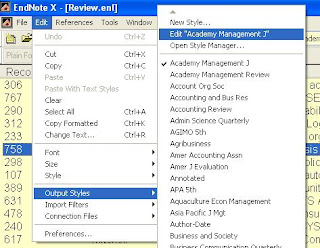The consultancy track has only one session, but there are two full papers:
- Experts or Organizational Witchdoctors from Peter Graham and Steven Brammer
- The pervasiveness of Liminality in the lives of independent co-creatives from Daniel Doherty
Graham's paper is relevant to my research because he's been studying aspects of power in the client-consultant relationship from the consultant perspective in the context of Corporate Social Responsibility (CSR) . He's done 39 interviews in 28 consultancy firms. The
witchdoctor thing in the title is because he's comparing the traditional model of consultants with the critical model that Tim Clark writes about. Woodworth calls consultants witchdoctors but it is probably Fincham who is better known.
The
traditional model is where the client is in charge, controls key elements and evaluates the quality of the project, being able to stop payment.
The
critical model is where the witchdoctor-like consultant seems to be in control, managing the clients' anxiety. It involves building up trust, but with a problematic relationship (anxiety, defensiveness) and poor thinking from the client. The metaphor '
witchdoctor' elicited a strong and somewhat negative reaction from a South African member of the audience, who drew our attention to how some cultures perceive a witchdoctor to be extremely powerful and dangerous. Perhaps it was the SA who suggested reading "
Management Decision" but the OU doesn't get this journal.
Graham discussed these models and aspects of power. He suggested that
expertise (in CSR) mattered less as the relationship build up, then more collaborative relationships developed (which matches the engagement stuff saying that one engaged employee contagiously got others engaged). This is something that I want follow up .
Graham hadn't separated out the types of client that consultants worked with and suggested there was a need for research from the client perspective was needed, particularly in case studies. And that suits me.
The second paper was presented in an unusual manner, which involved singing Martin Carthy's "
Christ made a trance", and then a dialogue read between two people. Daniel Doherty explained liminality with reference to Sturdy. Liminality is about work that happens really in the liminal spaces, the betwixt and between spaces, e.g. the car park. I suppose that in the sense of being temporarily in an organisation, consultants are liminal beings, and they face ambiguity being part of their consultancy firm and of the client organisation. They are chameleons who match shapes and colour in the environment, who tie between academic and practice boundaries. He mentioned Kitay's paper on consultants being outsiders in a firm.
I wonder how that compares with the theme of Pirendello's "Six Characters in Search of an Author", six people with six perspectives on one story, or six different narratives of one event.
I found Doherty's paper a bit difficult so have to think more about the concept of liminality.
Clark, T. and Fincham (Eds.) (2002) Critical consulting: new perspectives on the management advice industry, (1 Edn), Blackwell, Oxford. 39
Fincham, R. (2002) 'The Agent's Agent', International Studies of Management & Organization, 32 (4), pp. 67-86. 500
Kitay, J. and Wright, C. (2003) 'Expertise and Organizational Boundaries: The Varying Roles of Australian Management Consultants', Asia Pacific Business Review, 9 (3), pp. 21-40. 462
Sturdy, A., Schwarz, M. and Spicer, A. (2006) 'Guess who's coming to dinner? Structures and uses of liminality in strategic management consultancy', Human Relations, 59 (7), pp. 929-960. 900
Woodworth, W. and Nelson, R. (1979) 'Witch Doctors, Messianics, Sorcerers and OD Consultants: Parallels and Paradigms', Organizational Dynamics, 8 (2), pp. 17-33. 253







